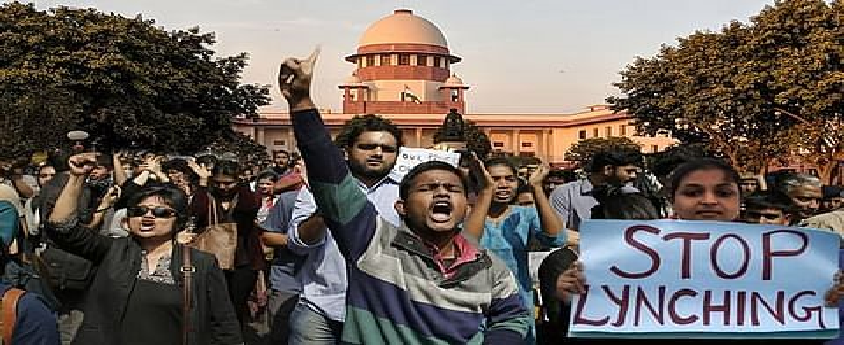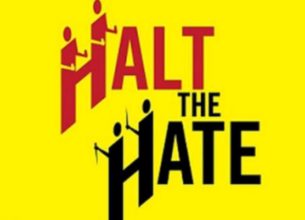Anti-Lynching Bills Passed by Four States Hanging fire
16, Feb 2022

Prelims level : Policies
Mains level : GS-II Welfare schemes for vulnerable sections of the Population by the Centre and States and the Performance of these Schemes; Mechanisms, Laws, Institutions and Bodies constituted for the Protection and Betterment of these vulnerable sections.
Why in News?
- Bills passed against mob lynching in the past four years by at least three States ruled by BJP Rivals and one Governed by the party itself have not been implemented with the Union Government taking a view that Lynching is not defined as a crime under the Indian Penal Code (IPC).
About Mob Lynching:
- The Manipur Law defined mob lynching as “any act or series of acts of violence or aiding, abetting such act/acts thereof, whether spontaneous or planned, by a mob on the grounds of religion, race, caste, sex, place of birth, language, dietary practices, sexual orientation, political affiliation, ethnicity or any other related grounds.”
- In 2018, the Supreme Court had also issued guidelines to curb lynching.
- The West Bengal (Prevention of Lynching) Bill, 2019 provides for three years to life imprisonment to those injuring a person and capital punishment or rigorous life imprisonment for those causing death.
- Manipur was the first state to pass a law against Lynching. Recently, Jharkhand and previously Rajasthan have also passed an anti-lynching bill.
What was the Supreme Court’s Guidelines on Preventing Mob Lynching?
- The state governments shall designate a senior police officer in each district for taking measures to prevent incidents of mob violence and lynching.
- The state governments shall immediately identify districts, sub-divisions and villages where instances of lynching and mob violence have been reported in the recent past.
- The Nodal Officers shall bring to the notice of the Director General of Police (DGP) any inter-district co-ordination issues for devising a strategy to tackle lynching and mob violence-related issues.
- It shall be the duty of every police officer to cause a mob to disperse, which, in his opinion, has a tendency to cause violence in the disguise of vigilantism or otherwise.
- The Central and the state governments should broadcast on radio and television and other media platforms including the official websites that lynching and mob violence of any kind shall invite serious consequence under the law.
- Curb and stop the dissemination of irresponsible and explosive messages, videos and other material on various social media platforms which have a tendency to incite mob violence. Register FIR under relevant provisions of law against persons who disseminate such messages.
- State governments shall prepare a lynching/mob violence victim compensation scheme.
- Ensure that there is no further harassment of the family members of the victims.
- If a police officer or an officer of the district administration fails to do his/her duty, the same will be considered as an act of deliberate negligence for which an appropriate action must be taken against him/her.
Way Forward:
- Lynching has become a social menace all across India; therefore the centre should come with the law to deal with it. The law should incorporate the following provisions:
- It should be applicable to all hate crimes, not just lynching (for example honour killing), regardless of the numbers of persons who participate.
- Since the essence of what distinguishes these kinds of crimes is not the numbers of attackers but the motivation of hate behind the crimes, therefore, the law should provision dealing with solitary hate crimes.
- The law needs to prescribe a much more expansive framework of mandatory gender-Sensitive Reparation.
- The law should Incorporate penal action against doctors who stand accused of dereliction of duty, for the delay in attending to victims of lynching.
- Under the Compensation scheme for the victims, the amount should be recovered from the perpetrators of the Crime.







